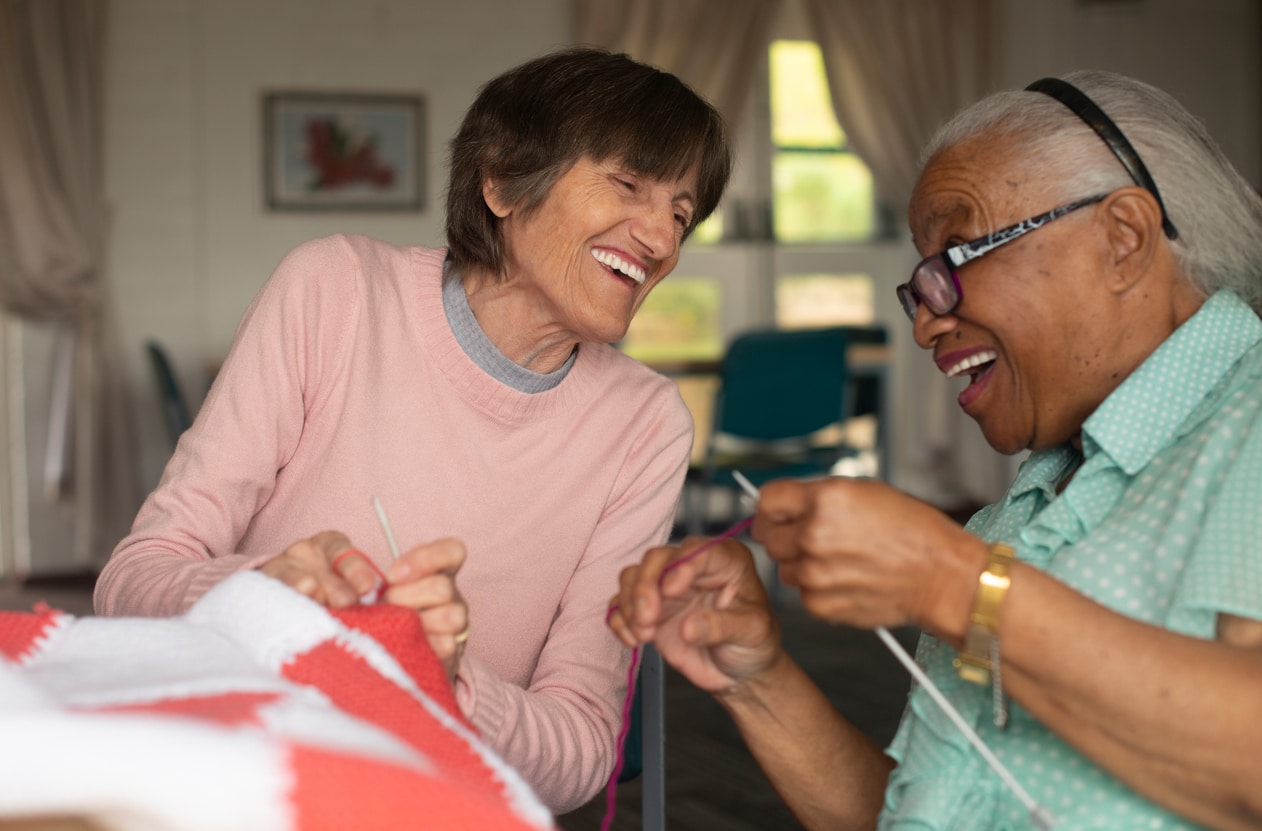
Six Healthy Mental Wellness Habits for Seniors
09/30/2025 | Blog | Reading Time 5 Minutes
Retirement ushers in an exciting new chapter, one filled with fresh opportunities and, at times, unexpected challenges. That’s why looking after your mental well-being is just as important for older adults as enjoying a nutritious diet and getting quality rest (both of which also play a major role in emotional balance!).
Below are six practical ways to encourage mental wellness in seniors, along with simple daily habits you can build into your lifestyle. Plus, discover how Aldersly in San Rafael, CA, creates an uplifting, worry-free environment designed to support growth, peace of mind, and overall well-being.
1) Physical Wellness
The mind and body are deeply connected, and when one struggles, the other often follows. That’s why focusing on whole-person wellness is a great mental health tip for seniors. Here are some ways to strengthen both your body and your mind:
- Stay active: Regular movement not only builds physical strength but also boosts mood, as the endorphins released through exercise naturally ease stress and worry.
- Prioritize sleep: Poor sleep can lead to irritability, fatigue, and a greater risk of mental health issues in seniors. If you’re having trouble sleeping, consider speaking with your physician about a sleep assessment or other solutions.
- Eat with intention: Choose well-balanced meals with lean proteins, healthy fats, and omega-3s from foods like salmon, walnuts, and flaxseed. Watch for sudden appetite changes, which may signal emotional distress.
- Manage your medications: Take your prescriptions as directed and be aware of potential side effects, as some can affect your energy, focus, and mood.
2) Keep Your Mind Engaged
Lifelong learning isn’t just stimulating — it’s also one of the most effective mental health practices for seniors. Keeping your brain active supports cognitive function and helps regulate emotions. At Aldersly, residents enjoy a diverse activities calendar including educational programs, cultural outings, and special interest groups!
You can add mental stimulation to your daily routine with activities like:
- Hobbies: Revisit a passion or try something new, like painting, gardening, woodworking, or learning a new language.
- Music: Playing an instrument can boost your memory, creativity, and brain health.
- Classes and lectures: Explore discussion groups, speaker events, or community courses.
- Digital learning: Online workshops make it easy to explore new subjects at your own pace and on your own schedule.
- Thoughtful media: Spend downtime with books, documentaries, or podcasts that inspire your interest and curiosity.
3) Stay Connected With Others
Meaningful relationships play a major role in senior mental health. Regular connection, whether in person, over the phone, or online, helps reduce loneliness, sharpens your memory, and keeps the brain’s emotional centers engaged.
Ways to stay socially connected include:
- Checking in often: Keep your social life active with regular calls, video chats, or meals with family and friends.
- Joining a group: A book club, walking group, or support circle can provide companionship and connection over shared interests or life experiences.
- Engaging locally: Volunteer, attend community events, or take part in group programs to meet new people who live in your area.
4) Manage Your Media Use
Too much exposure to news and social media can feel overwhelming, leading to stress or even depression in older adults. Practicing mindful media habits is a smart way to protect your emotional balance. Consider these strategies:
- Set boundaries: Limit endless scrolling by dedicating specific times of the day for news or social updates.
- Rely on trusted outlets: Choose reliable, fact-based sources over sensationalized reporting.
- Find uplifting content: Search out media that educates, motivates, or inspires you.
5) Practice Gratitude Every Day
Cultivating gratitude is one of the most effective ways to improve mental health in older adults. Noticing and appreciating life’s small joys can ease stress, help your perspective, and build emotional resilience. Here are some easy ways to get started:
- Journaling: Write down moments, people, or experiences that bring you joy.
- Mindfulness: Take time to reflect, meditate, or pause for appreciation in your daily life.
- Spiritual practices: Whether through prayer, time in nature, or quiet reflection, practicing gratitude can come in many forms. Find what works for you!
6) Build a Balanced Routine
Establishing a daily rhythm creates stability, fulfillment, and support for both your mental and emotional health. A well-rounded routine can help seniors cope with stress, prevent depression, and promote long-term wellness. Try incorporating these habits into daily life:
- Start with intention: Gentle stretching, deep breathing, or meditation in the morning helps to set a positive tone.
- Eat consistently: Balanced meals throughout the day keep your mind and body nourished.
- Get outdoors: Whether it's gardening, walking, or simply enjoying the sun, time in nature can lift your mood and reduce anxiety.
- End the day by unwinding: Create a soothing evening routine that limits screen time and encourages relaxation.
Remember: Your routine doesn’t need to be strict. Whether you prefer flexibility or structure, the goal is simply to develop daily practices that you will keep up with that nurture your physical, emotional, and mental health.
Support Your Mental Health at Aldersly
Nestled in San Rafael, CA, Aldersly provides a holistic retirement lifestyle that emphasizes positive mental health, meaningful connections, and opportunities for growth. With enriching programs, chef-prepared meals, and a warm, welcoming environment built around hygge, residents enjoy both independence and peace of mind — knowing support is available whenever needed.
Contact us today to learn how Aldersly can help you embrace retirement with confidence, joy, and a healthy mindset.

